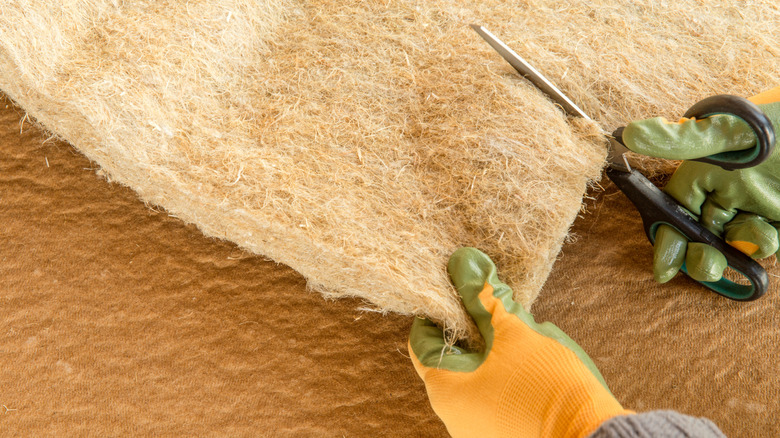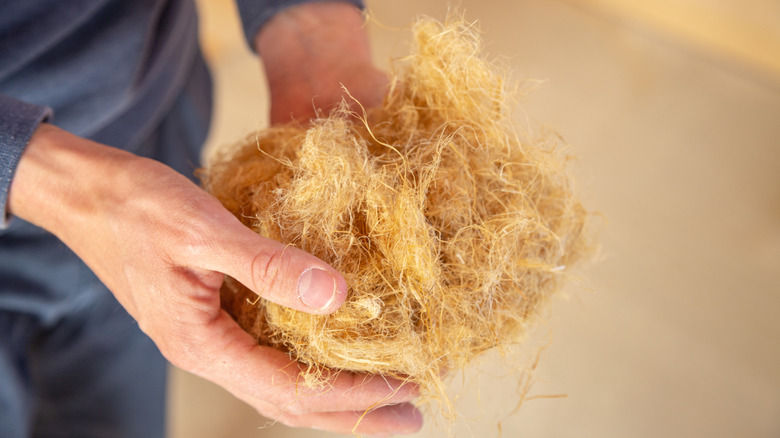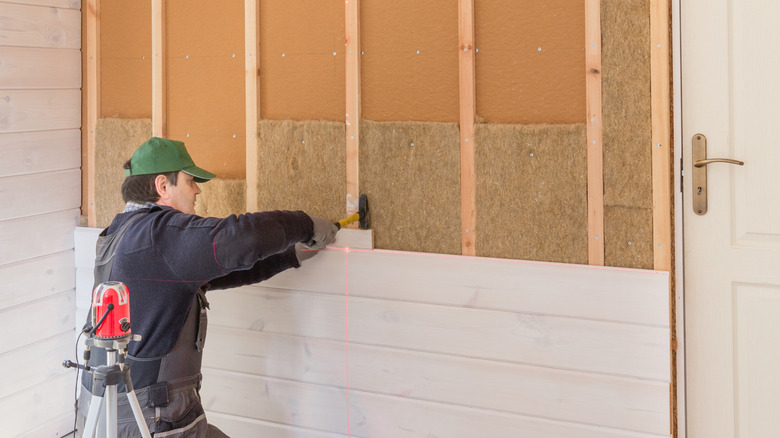Is Hemp Insulation The Way Of The Future? Inside The Sustainable Trend
Hemp is a widely recognized alternative fiber that is known for its versatility and sustainability, among other qualities. Since 2018, it has become a popular trend, reaching a market value of $252 million in just 5 years. But for years, it took a back seat to other materials in the textile, paper, and construction industries. This has been attributed to the relationship hemp fiber has with similar plants (Cannabis sativa) that are cultivated for their medicinal and recreational properties. Hemp stalks, however, do not have the same psychoactive ingredients, and are a very useful and versatile material that can be used to create natural fibrous insulation panels, becoming a natural alternative to expanding foam that people love. Research shows that hemp is highly energy-efficient, proving to be an effective alternative to fiberglass and foam insulation.
However, research regarding the long-term effectiveness and sound reduction qualities of hemp insulation is promising, but still ongoing. While the United States Department of Energy recognizes hemp as a legitimate insulation material with an R-value on par with any other fibrous insulation, it also states the material is not yet widely used in the United States. That being said, experts believe that the market will continue to grow in coming years. New research and development could bring more interest as industry leaders address current concerns like legal compliance, production costs, and availability.
The growing popularity of hemp insulation: a trend or a revolution?
Hemp is renowned for its sustainable value due to the plant's growth speed, which yields up to four full harvests per year. The quality of the fiber also makes it a desirable material for a variety of applications, from a natural oil to a hemp shower curtain, a switch that could seriously benefit your bathroom. But if it's such a great material, why isn't it already widely used? Ultimately, it comes down to legality. The cultivation of the plant itself has been regulated due to the status of all cannabis, including many hemp products, as a controlled substance. Since laws began changing in 2018, the insulation and construction industry has been able to take advantage of this versatile material.
The big question is: is hemp insulation a passing trend, or is it here to stay? Research is still ongoing, but experts are optimistic about the potential economic and sustainable impact of hemp insulation. Engineers around the world are actively researching and developing new products and applications in favor of growing market potential. There are several key drivers in the market that indicate that this is more than just a trend. For example, the growing demand for sustainable building materials is supported by government programs and initiatives. Hemp panels are also proven to be easier and safer to install. So, if you want to ensure your home insulation is performing at its best while remaining sustainable, it may be time to consider hemp as an alternative insulation.
Hemp insulation has several pros and a few drawbacks
One of the biggest and most supported benefits of hemp insulation is sustainability. Installing hemp insulation is a great way to make your home more eco-friendly. According to experts at Georgia Tech, switching to hemp insulation in home and building manufacturing could reduce insulation's environmental impact by up to 90% because production does not contribute to greenhouse gas emissions. Hemp insulation is renewable and recyclable, plus the way hemp stores carbon dioxide significantly contributes to reduced carbon emissions during the growth phase and after installation. It has a similar R-value to synthetic insulation, making it a viable replacement at R3.69 per inch compared to R2.2 to R4.3 per inch of fiberglass batting. In addition, it is energy efficient, non-toxic, breathable, and resistant to fire and fungi. Aside from all the other pros, research also shows that increasing hemp insulation production could stimulate the economy by creating more jobs and boosting revenue in the industry.
However, there are still some cons to using hemp insulation. The biggest con is something that manufacturers face regarding the cost of production. In general, hemp insulation is more expensive to produce than synthetic alternatives like fiberglass, which could mean a higher price tag for homeowners. However, sustainable construction laws and initiatives that award builders tax breaks for using green materials could help to offset the costs. Hemp insulation also may be less durable in high-moisture environments, making it less suitable for basements or humid climates. The only other major downfall at this stage in the industry's development is awareness, because it is such a new product.


